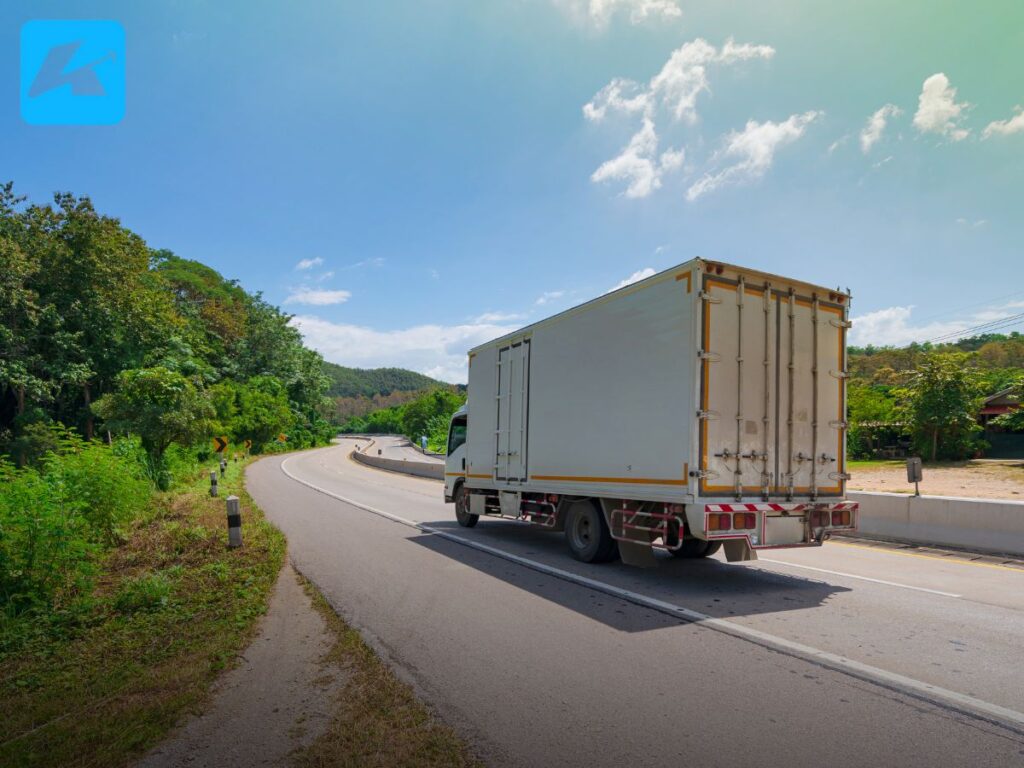Navigating the world of freight logistics can feel like walking through a maze blindfolded. With tight deadlines, complex shipping needs, and the pressure to keep costs down, finding a freight broker you can trust is a game-changer.

A reliable broker acts as your partner, connecting you with carriers, streamlining operations, and ensuring your cargo arrives safely and on time. But how do you separate the trustworthy from the unreliable?
Here are five key factors to consider when choosing a freight broker, along with practical tips to make the process easier.
1. Verify Licensing and Credentials
Trust starts with legitimacy. A reputable freight broker should be licensed and bonded, which ensures they meet industry standards and have financial protections in place.
In the U.S., the Federal Motor Carrier Safety Administration (FMCSA) requires freight brokers to hold a valid broker authority (MC number) and a surety bond or trust fund to cover potential claims.
Before partnering with a broker, check their credentials. You can verify their MC number through the FMCSA’s online database.
A licensed broker has gone through the necessary steps to operate legally, which is a strong indicator of professionalism. For example, a broker like Kargage, based in Jackson, Mississippi, proudly maintains its licensing and bonding, giving clients peace of mind that their shipments are in capable hands.
Pro Tip: Ask the broker for their MC number and cross-check it with the FMCSA’s SAFER system. Also, confirm they carry a surety bond of at least $75,000, as required by federal regulations.
2. Look for Industry Experience and Expertise
Logistics is a complex field, and experience matters. A seasoned freight broker brings knowledge of carrier networks, freight types, and industry challenges, which translates into smoother operations for you.
Whether you’re shipping dry van, refrigerated goods, or oversized loads, an experienced broker knows how to match your cargo with the right carrier and navigate potential roadblocks.
Ask potential brokers about their years in the industry and their expertise with your specific shipping needs. For instance, if you’re moving perishable goods, a broker with a track record in refrigerated freight will understand temperature requirements and carrier qualifications.
Look for a broker who can demonstrate a history of successful shipments and isn’t afraid to share their expertise.
Action Step: Request case studies or examples of past shipments similar to yours. A broker with deep industry knowledge will be happy to share how they’ve handled complex logistics challenges.
3. Prioritize Communication and Support
In logistics, silence is not golden—it’s stressful. A trustworthy freight broker prioritizes clear, timely communication, keeping you informed from pickup to delivery.
Whether it’s a delay due to weather or a last-minute change in scheduling, you want a broker who’s proactive about updates and available when you need them.
Look for brokers who offer 24/7 customer support, as logistics issues don’t always happen during business hours.
A responsive broker can mean the difference between a minor hiccup and a major headache. Imagine you’re tracking a time-sensitive shipment, and the truck hits unexpected traffic.
A reliable broker will notify you immediately and work to find a solution, rather than leaving you in the dark.
Quick Tip: Test a broker’s responsiveness before signing on. Send an email or make a quick call to see how quickly they reply and whether they address your questions thoroughly.
4. Evaluate Their Carrier Network
A freight broker’s value lies in their ability to connect you with reliable carriers. A strong carrier network means more options, better rates, and greater flexibility to meet your needs.
Brokers with extensive networks—say, access to 31,000+ carriers—can quickly find the right fit for your shipment, whether it’s a flatbed for construction materials or an expedited truck for urgent deliveries.

Ask about the size and quality of their carrier network. How do they vet carriers? Do they prioritize safety and reliability? A trustworthy broker will have a rigorous screening process to ensure carriers meet high standards for insurance, safety ratings, and performance. This reduces the risk of delays or damage to your cargo.
Best Practice: Inquire about the broker’s carrier onboarding process. A reputable broker will check carriers’ safety records, insurance coverage, and compliance with regulations to protect your shipments.
5. Assess Technology and Transparency
In 2025, technology is a must-have in logistics. A trustworthy freight broker uses modern tools to provide transparency and efficiency. Real-time tracking, digital load boards, and automated updates make it easier to monitor your shipment and plan accordingly. A broker who relies on outdated methods, like phone calls and paper logs, may struggle to keep up with today’s fast-paced demands.
Look for brokers who offer digital platforms or apps for tracking shipments and accessing documentation. For example, a broker with GPS tracking can give you real-time updates on your cargo’s location, so you’re never left guessing. Companies like Kargage leverage cutting-edge technology to provide clients with clear visibility, proving that the right tools can simplify even the most complex logistics challenges.
How to Start: Ask for a demo of the broker’s technology. A user-friendly platform that provides real-time data is a sign of a forward-thinking partner committed to your success.
Making the Right Choice
Choosing a freight broker you can trust doesn’t have to be overwhelming. By focusing on licensing, experience, communication, carrier networks, and technology, you can find a partner who makes logistics feel effortless. Here’s a quick checklist to guide your decision:
- Is the broker licensed and bonded? Check their MC number and surety bond status.
- Do they have relevant experience? Look for expertise in your freight type and industry.
- How responsive are they? Test their communication with a call or email.
- What’s the strength of their carrier network? Ask about size and vetting processes.
- Do they use modern technology? Ensure they offer real-time tracking and digital tools.
A great freight broker is like a trusted friend—someone who listens, anticipates your needs, and delivers results. At Kargage, we’ve built our reputation on these principles, offering tailored solutions and 24/7 support to businesses across the U.S. But this isn’t about us—it’s about empowering you to make an informed choice.
When you’re ready to partner with a broker, take your time to evaluate your options. A little research now can save you headaches later. And if you’re looking for a starting point, feel free to reach out to a licensed broker like Kargage at (727) 628-3545 for a quote. Your cargo deserves a partner you can trust—choose wisely, and let them handle the rest.

